|
In This Issue:
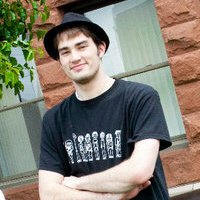
Getting There: Journeys From 'Here to There' in Literature
By Alex Nall
I’ve
learned an important lesson from the variety of books I’ve read so far
this semester: life is hard, and it only gets harder as you get older.
With any major, it is important to read the literature pertaining
to your field of study and learn from others who have had the same
experiences.
Hopefully, as students, we will take the opportunity to do this, and
better ourselves in the long run. The catalog of memoirs, autobiographical novels and articles
I’ve read this semester have taught me that it isn’t easy getting
there.
Barbara
Mellix’s essay “From Outside, In” reveals the author's challenge with
trying to remain true to the urbanized lingo she grew up with in her
childhood and adapt to the language of white society’s work environment.
Mellix says that trying to juggle both languages has proven
difficult, but she had to overcome her desire to speak in an
idiosyncratic way to keep her job. Language is important to Mellix
because it gives her a portal to her childhood and how she has
developed since she was a student. She speaks of herself with admiration: “If I could
write letters for a nationally known business, could I not also do
something better, more challenging, more important?” Mellix decides
to keep both languages because the struggle to overcome her
urbanized speak in the work environment has brought her to where she is today.
Sidney
Poitier’s memoir The Measure of a Man depicts his ascension
from the primitive Cat Island of the Bahamas to the limelight of the
New York theatre scene. Poitier explains that his journey was
difficult not only because of his skin color, but because of his
agonizing eight-year separation from his parents who remained on
their native island. Poitier never planned on being an actor; the
job simply came to him as he searched for work. He wanted to prove
something to an employer who refused to hire him: “There was more to
Sidney Poitier than a sink full of dirty dishes!” and eventually,
through his trials, he became the first African-American to win an
Academy Award for Best Actor. But in order to do this he had to
overcome the challenge of learning a new way of living in the big
city, moving away from his parents and growing up by himself.
Even in
fiction, characters are challenged to take on fierce obstacles in
order to reach a sense of purpose and identity. Richard Wright is a particular
author who can encompass what this obstacle feels like. In his memoir Black Boy,
he must overcome the hatred that resides in his Southern
Mississippi home, the overzealous family that beat him mercilessly,
the oppression of white co-workers and later in his life, the
clutches of the
Communist Party He aspires to become a writer and use his stories to
motivate the integration cause. To get there, he must outwit and
outlast all of these foils and even when he does, he is not sure if
he has accomplished anything. However, in his novel
Native Son, he portrays his protagonist, Bigger Thomas, as a
young black man with no aspirations and has a desire to instill fear
into anyone that communicates to him. Eventually, he is put on trial
for two murders and begins to contemplate his existence in a society
that does not understand him. Wright knows how hard it is to get
from here to there, especially when the whol world seems to be
aganist you. His memoir shows his steps towards accomplishing his dream to
be a writer, but his novel shows how that dream can be hopeless when
you have no motivation in your life.
Writers who
speak of their struggle are appealing to a diverse number of readers
because everyone, at some time or another, is going to struggle with
an obstacle—some that are easier than others. Reading about other
peoples'
accomplishments and the steps they took to get there are refreshing
to us, because if they can do it, then perhaps, so can we.
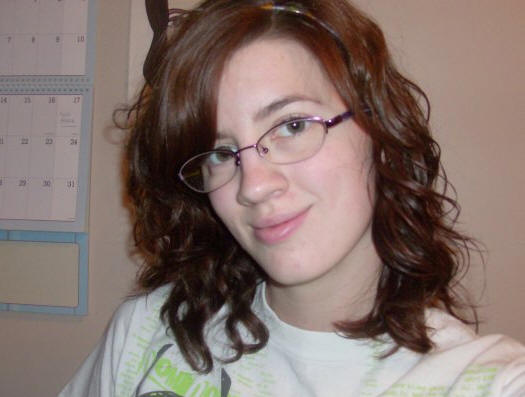 Where
They Are Now: Words From Past Majors Where
They Are Now: Words From Past Majors
By Leanna Waldron
We’re already coming to the
close of our first semester this school year, and for a lot of
English majors that means moving one step closer to the terror that
is Senior Seminar and graduation. And that means that a lot of you
are going to have to start thinking about things like the real world
and adult jobs, something that is both hugely exciting and
incredibly frightening. So, to create some peace of mind, I interviewed two of our alumni, Anne
Stone and Paige Halpin, graduates from the class of 2009. Hoping to
gain words of wisdom from them, I asked how they stumbled upon the
English major at Monmouth College and what they are doing with it
now.
Currently, Halpin is continuing
her career as a “professional student” in her second year of a
Master’s program in U.S. History at Loyola University in Chicago.
Once she finishes up in the spring, she hopes to go on to a Ph.D.
program and become a Professor of History at a small college. As for
Stone, she is currently working at Austin Peay State University in
Clarksville, TN as a writing workshop instructor. There, she tutors
conditional admissions, ESL students and freshman athletes. When I
asked her if this is what she ultimately wants to be doing, she
said, “This is what I want to be doing right now. I love it, but I
eventually want to become an English professor.”
One of the most interesting
things I found out from both Halpin and Stone is that neither
started out their careers at Monmouth as English majors.
In fact, both were Elementary Education majors. Stone said
she switched because, “My English 110 professor helped me realize my
love for reading and writing, and I knew I wasn’t cut out to teach a
young age group.” This just
goes to show that the English major is a sneaky one; it finds you
and lures you in before you know what you’re getting into, even if
you think you know what you want to do with your life when you enter
college.
Both Halpin and Stone switched
from Elementary Education to English fairly early on in their
studies at Monmouth. When I asked them which English class
was their favorite, they had very different answers.
Halpin said that hers was Rob Hale’s Victorian Culture class,
where students studied not only Victorian literature, but also art,
theatre, music and food. Halpin said, “I think it was in this class
that I realized that I was interested in studying cultural history.”
Stone’s favorite class, taught by Craig Watson, was Modern Novels
because “the content was so different from most of the other courses
I had taken at MC.” Along with her love of the discussion that went
on in the class, Stone said that she really enjoyed reading
literature from a century she had actually lived in, a sentiment I’m
sure most of us, especially those who have gone through the Survey
courses, echo from time to time.
Finally, I asked both alumni for some 'words of
wisdom' for those of us who are still figuring things out. Here is
what they said:
"Don't
ever stop reading. Never again, well, unless you go to graduate
school, will you have the opportunity to closely read and discuss
texts with your peers like you can in college. Enjoy it. Also, take
advantage of the chance to rewrite your work - there is no good
writing, only good rewriting. It's time consuming, but so worth it."
- Paige Halpin
"My
senior year, I told Dr. Belschner that I couldn't wait to graduate
and get on to my next adventure. She told me I would regret saying
it later, and she was right. You'll miss discussion and discovering
themes. You'll miss explicating poems and analyzing short stories
and staying up late to read a novel you don't appreciate (yet).
Savor it - conversation is pretty boring these days." - Anne Stone
Survey Says!!
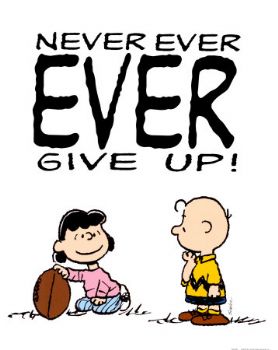
What character in literature has
taught you the biggest life lesson?
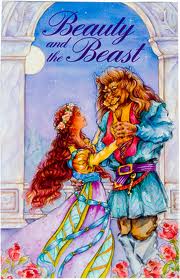
Bell from
Beauty and the
Beast. The lesson: "Do not be deceived by appearances for beauty is
found within [a person]".
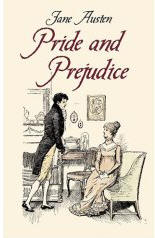 I
learned a great lesson from Elizabeth in Pride and Prejudice. I
learned that you can't judge people by what you think you know about
them. You have to be open and not too proud and not have prejudice. I
learned a great lesson from Elizabeth in Pride and Prejudice. I
learned that you can't judge people by what you think you know about
them. You have to be open and not too proud and not have prejudice.
-Katie Argentine
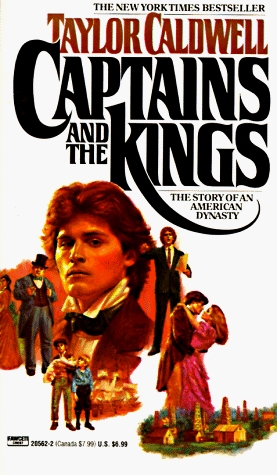 Joseph
Armagh, from Captains and the Kings. It's a rags to riches story about an Irish
immagrant who climbs to the top in order to create a life for his thankless
younger siblings. The lesson he taught me was that one can gain the whole world
and yet not lose one's soul if it is for the love of something moral. Joseph
Armagh, from Captains and the Kings. It's a rags to riches story about an Irish
immagrant who climbs to the top in order to create a life for his thankless
younger siblings. The lesson he taught me was that one can gain the whole world
and yet not lose one's soul if it is for the love of something moral.
-Brandon Groom
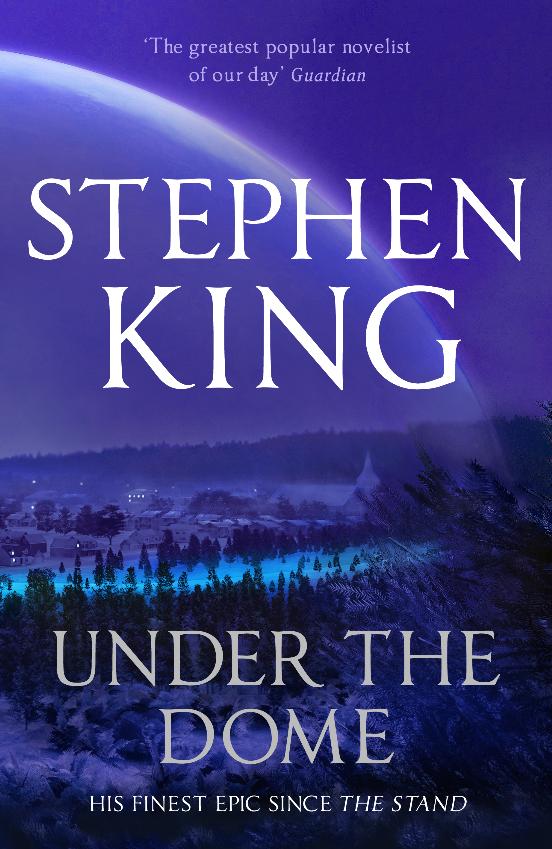 In
Stephen King's Under the Dome, protagonist Dale
Barbara has an epiphany that so perfectly
concludes the epic novel, which beneath the
horrific villainy and isolation is so richly
endowed with humanitarian and environmentalist
commentary: "They walked back into the world
together, wearing the gift that had been given
them: just life. Pity was not love, Barbie
reflected...but if you were a child, giving
clothes to someone who was naked had to be a
step in the right direction." In
Stephen King's Under the Dome, protagonist Dale
Barbara has an epiphany that so perfectly
concludes the epic novel, which beneath the
horrific villainy and isolation is so richly
endowed with humanitarian and environmentalist
commentary: "They walked back into the world
together, wearing the gift that had been given
them: just life. Pity was not love, Barbie
reflected...but if you were a child, giving
clothes to someone who was naked had to be a
step in the right direction."
-Alex
Kane
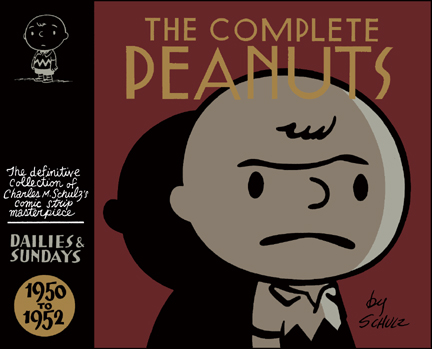 I
learned a lot about the way humans work from the works of Charles Schultz, the
creator and illustrator of the Peanuts series. His characters always had
something to tell me whether it was from the philosophical musings of Snoopy to
the adolescent thoughts of Charlie Brown. I
learned a lot about the way humans work from the works of Charles Schultz, the
creator and illustrator of the Peanuts series. His characters always had
something to tell me whether it was from the philosophical musings of Snoopy to
the adolescent thoughts of Charlie Brown.
-Alex Nall
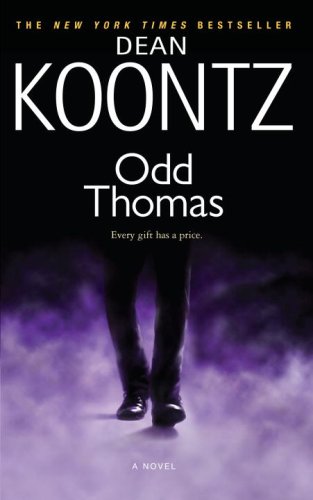 Odd
Thomas of Dean Koontz's Odd Thomas series has taught me so much about myself
and other people around me. One of the main lessons I have learned from the
quirky 20-something fry cook is to accept yourself for who you are. You can
always try to better yourself, but you have the gifts you have for a reason and
don't ever try and change them. This lesson has definitely helped me a lot in
both my academic career and my personal life in general. Odd
Thomas of Dean Koontz's Odd Thomas series has taught me so much about myself
and other people around me. One of the main lessons I have learned from the
quirky 20-something fry cook is to accept yourself for who you are. You can
always try to better yourself, but you have the gifts you have for a reason and
don't ever try and change them. This lesson has definitely helped me a lot in
both my academic career and my personal life in general.
-Leanna Waldron
|





 I
learned a great lesson from Elizabeth in
I
learned a great lesson from Elizabeth in 
 In
Stephen King's
In
Stephen King's  I
learned a lot about the way humans work from the works of Charles Schultz, the
creator and illustrator of the Peanuts series. His characters always had
something to tell me whether it was from the philosophical musings of Snoopy to
the adolescent thoughts of Charlie Brown.
I
learned a lot about the way humans work from the works of Charles Schultz, the
creator and illustrator of the Peanuts series. His characters always had
something to tell me whether it was from the philosophical musings of Snoopy to
the adolescent thoughts of Charlie Brown. Odd
Thomas of Dean Koontz's
Odd
Thomas of Dean Koontz's